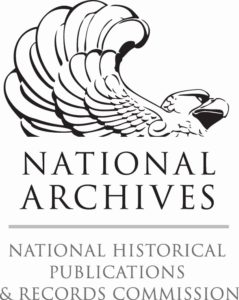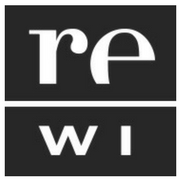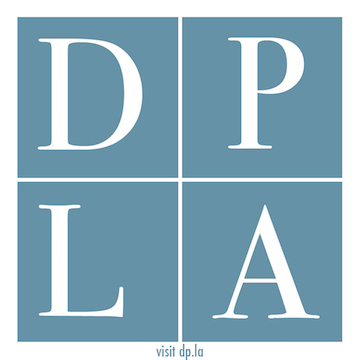Develop a Project Plan
Use the Digital Project Planning Worksheet to outline your project before you get started. You can also use this worksheet to keep a record of decisions and changes made during your project, so others can take up the work if a staff member or volunteer moves on. We’re big fans of documentation. Write it down now, you’ll thank yourself later!
Determine Needed Resources
What resources are needed to move your priority projects forward? Factor in one-time costs such as equipment purchases as well as ongoing expenses to maintain a digital project, such as storage costs or software upgrades. Many digitization projects are made possible by grants from federal, state, or local sources. At the local level, consider funding opportunities such as your county’s arts and humanities board, your Chamber of Commerce, or locally-owned corporations.
Resources needed for a digital project may include:
- Paid staff members to do digitization work
- Paid staff members to train or supervise volunteers or interns
- Intern stipends or honoraria
- Digitization vendor fees
- Travel or shipping costs to transfer materials to and from vendor
- Training opportunities such as webinars or workshops
- Scanner, digital camera, audio or video recording equipment
- Software for processing digital files (image editing, OCR, etc.)
- Software for online access
- Dedicated space for digitization work, including a desk/table and stable Internet connection
- Cloud storage for digital files (Google Drive, Dropbox, Microsoft One Drive, etc.)
- Local storage for digital files (server, external hard drives, RAID devices, etc.)
Keep in mind that the biggest investment needed for digital work is typically not money, it’s time — the many hours that staff or volunteers spend learning new skills and procedures, creating digital images and metadata, and maintaining the digital content.
Audiovisual Collections Spotlight: Planning a Community Archiving Workshop
After inventorying your audiovisual collections, your organization may want to jump-start your AV digitization and preservation work by planning and hosting a Community Archiving Workshop (CAW). In a CAW, experienced audiovisual archivists partner with volunteers and staff at a community archives or museum. During a day-long workshop, the professional archivists provide training and equipment while the participants gain hands-on experience assessing and cataloging AV materials.
The aim of a CAW is to learn, have fun, build connections, and do productive work to begin preserving collections that include at-risk audio, video or film. The Community Archiving Workshop model is flexible and can be adapted to meet your organization’s needs and resources. The most common result of a day-long CAW is a prioritized inventory for all or part of a collection which can serve as the foundation for future preservation and access planning. For more information on planning a workshop, see the Community Archiving Workshop Handbook.
Develop a Project Budget
Sample project scenario:
We’re a volunteer-run historic house museum with a collection of about 500 black-and-white photographs we’d like to digitize. We have a volunteer interested in doing the scanning, and we’re going to hire a summer intern from the local community college to help with researching copyright and creating metadata. We’ll partner with our local public library to borrow a digitization kit through our regional library system and work with the library to host our collection in Recollection Wisconsin. We’ll store two copies of our primary files on external hard drives, one stored here at the museum and one at the regional library system office.
Sample project budget:
| RESOURCE | NOTES | COST |
|---|---|---|
| Skills and Knowledge (training, guidelines, technical standards) | Need training on digitization procedures and equipment | RW: $0 Paid training courses vary in price, $50-$250 |
| People (staff, volunteers, interns, vendors) | For interns, estimate $15/hour for 120 total hours | Volunteers: $0 Paid work: $1800 |
| Hardware (scanner, digital camera, computer) | Borrow public library digitization kit | $0 |
| Software (for online access, image editing, text recognition) | Online access: hosting through Recollection Wisconsin | $200 setup fee $125/year |
| Storage (server, cloud storage, external hard drives) | 2 external hard drives (1 TB each) | $200 |
Working with Volunteers
Many local history organizations rely heavily on dedicated volunteers to perform a range of digital collections development work. A successful volunteer program needs a plan for attracting, training, supporting, and recognizing volunteers. Volunteers may come to your organization to donate their time and experience, but it’s important to keep in mind that it’s not what they can do for you that keeps them coming back, it’s what you can do for and with them to foster a positive environment and sense of community.
Check out our Toolkit for Engaging Volunteers for more information.
For Recollection Wisconsin Content Partners: Partnering to Share Resources
Before investing in new hardware or software, consider whether a regional or statewide collaborative option might meet your needs. For example, many public library systems in Wisconsin have digitization kits with a basic flatbed scanner available to loan to their member libraries. Kits for identifying and digitizing audiovisual materials are also available. (See the Digitize section of the Toolkit for more information on purchasing or borrowing digitization equipment.)
In general, it’s always worth reaching out to your county historical society, local public library, local college archives, Area Research Center, historic preservation office or similar organization to ask about efforts already underway, resources available for projects such as yours, or potential partnerships. Consider checking with us at Recollection Wisconsin too! Our bird’s eye view of the statewide landscape means we’re able to connect you with others working on similar projects.
Resources and Tools
- Digitization Cost Calculator, Digital Library Federation.
- Salo, Dorothea. “Those Two Boxes of Tapes,” , Appleton Public Library Digital Readiness Fair, 2021.
- Northeast Document Conservation Center. Fundamentals of AV Preservation, especially Chapter 2, Section 3, “Prioritization for Digitization.”
- Community Archiving Workshop, “Community Archiving Workshop Handbook.”

 The Digital Readiness Toolkit and related resources were made possible in part by grants from the National Historical Publications and Records Commission.
The Digital Readiness Toolkit and related resources were made possible in part by grants from the National Historical Publications and Records Commission.
